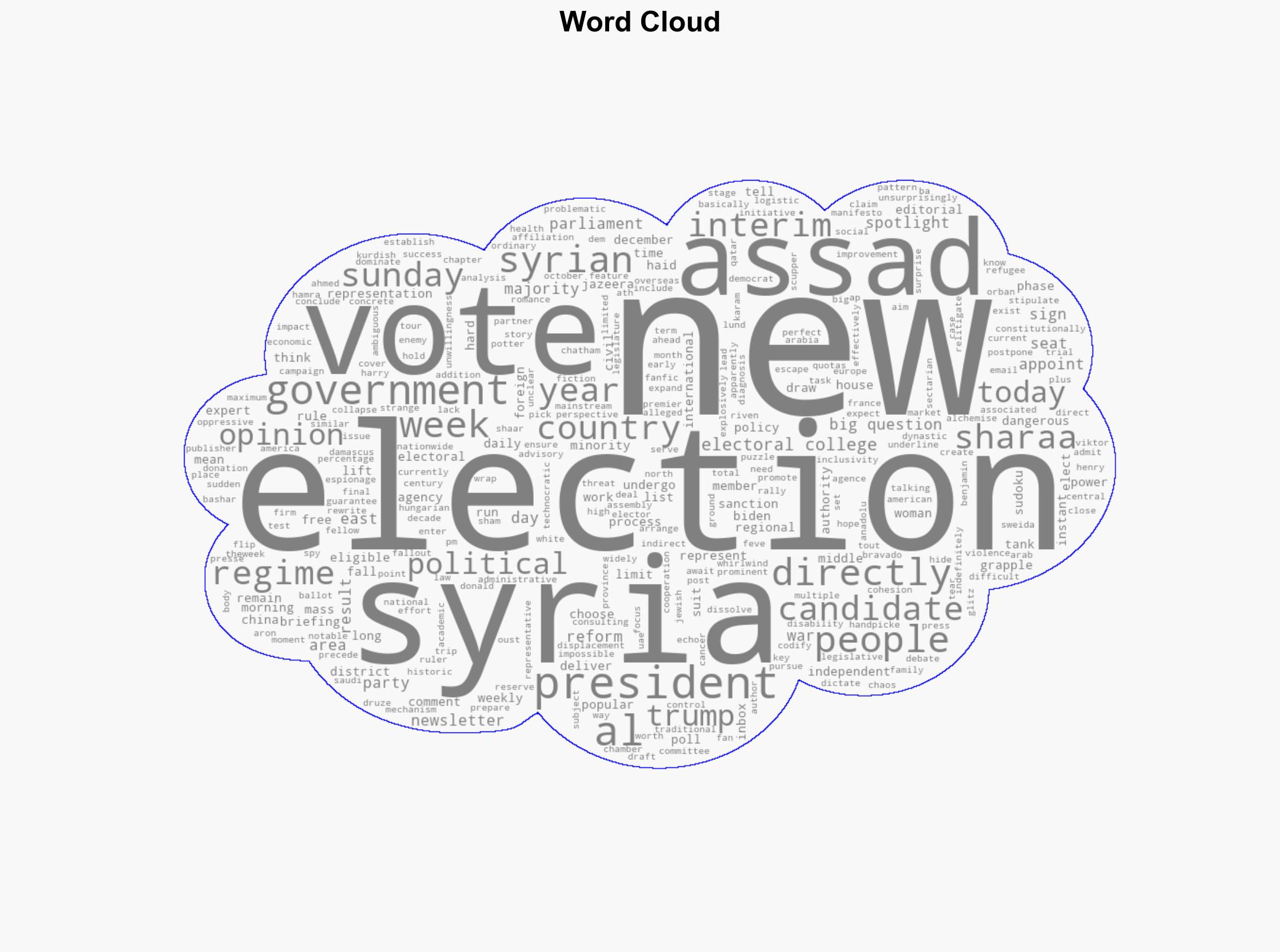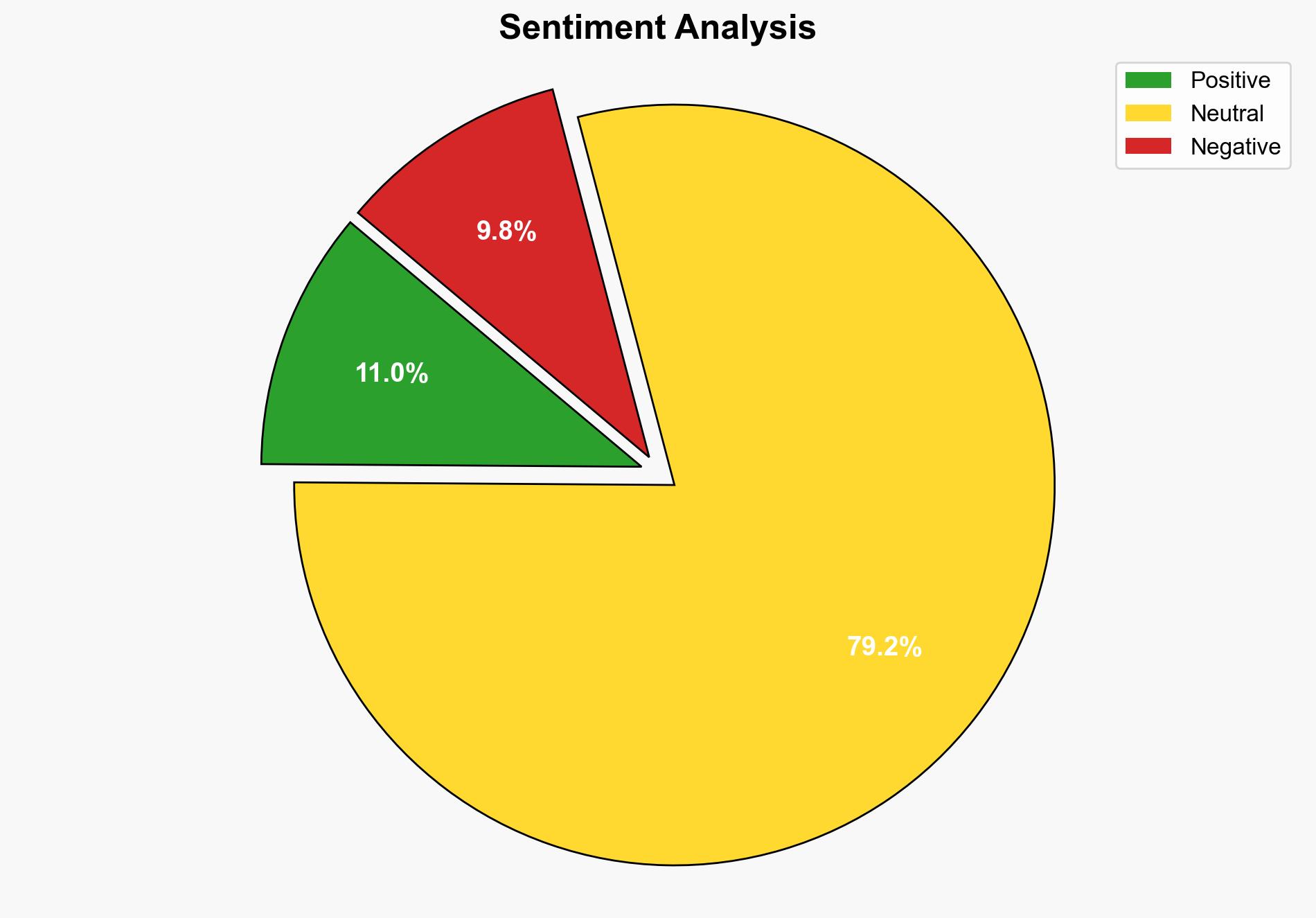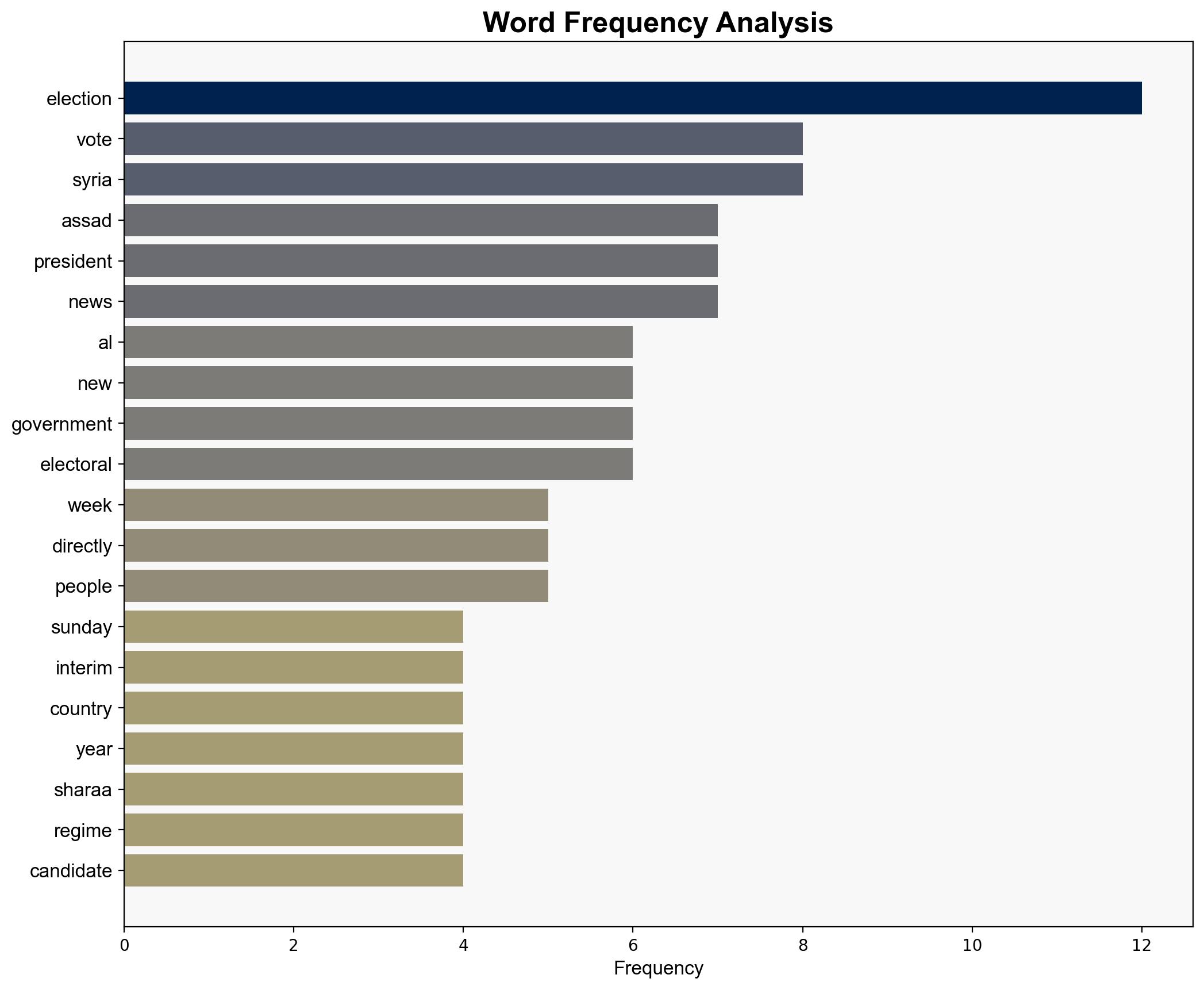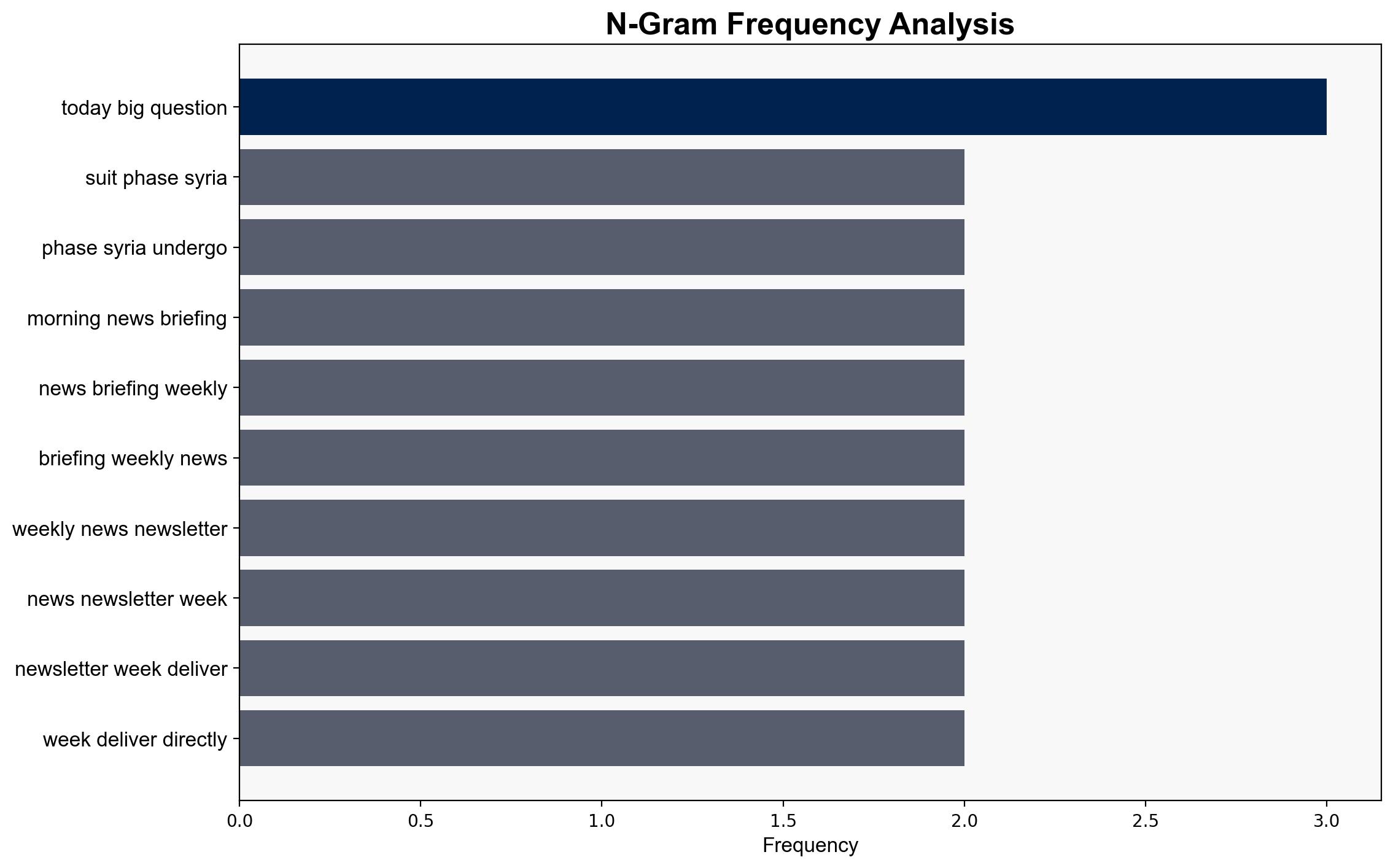Syrias strange post-Assad election – The Week Magazine
Published on: 2025-10-06
Intelligence Report: Syria’s Strange Post-Assad Election – The Week Magazine
1. BLUF (Bottom Line Up Front)
The most supported hypothesis is that the post-Assad election process in Syria is primarily a facade to maintain control by the existing power structures under the guise of democratic transition. Confidence in this assessment is moderate due to limited transparency and conflicting reports. Recommended action includes monitoring developments for shifts in power dynamics and preparing for potential instability.
2. Competing Hypotheses
1. **Hypothesis A**: The election is a genuine attempt at democratic reform, aiming to stabilize the country and provide a platform for diverse representation.
2. **Hypothesis B**: The election is a controlled process designed to maintain the status quo, with limited genuine political change, orchestrated by current power holders to appease international observers and manage internal dissent.
Using ACH 2.0, Hypothesis B is better supported due to the electoral process being described as indirect, with significant influence from the interim president and existing power structures. The appointment of electoral college members and the postponement of votes in certain regions further suggest manipulation rather than genuine reform.
3. Key Assumptions and Red Flags
– **Assumptions**: Hypothesis A assumes a willingness and ability of the interim government to implement democratic reforms amidst logistical and security challenges. Hypothesis B assumes the interim government prioritizes control over genuine reform.
– **Red Flags**: The appointment of electoral college members by the interim president and the lack of transparency in the electoral process. The postponement of votes in conflict-affected areas raises questions about inclusivity and fairness.
– **Blind Spots**: Limited information on the perspectives of ordinary Syrians and minority groups, as well as the potential influence of external actors.
4. Implications and Strategic Risks
– **Political Stability**: Continued control by existing power structures may lead to prolonged instability and dissatisfaction among marginalized groups.
– **Geopolitical Risks**: The perception of a sham election could impact international relations and aid, potentially inviting external intervention or support for opposition groups.
– **Economic Impact**: Uncertainty and perceived illegitimacy of the government may deter investment and prolong economic hardship.
5. Recommendations and Outlook
- Monitor the situation for signs of genuine reform or increased repression. Engage with regional partners to assess the impact on regional stability.
- Scenario Projections:
- **Best Case**: Genuine reforms lead to increased stability and international support.
- **Worst Case**: Escalation of conflict due to perceived illegitimacy of the government.
- **Most Likely**: Continued control by current power structures with limited reform, leading to ongoing instability.
6. Key Individuals and Entities
– Ahmed al Sharaa
– Henry Hamra
7. Thematic Tags
national security threats, regional focus, political stability, democratic reform




